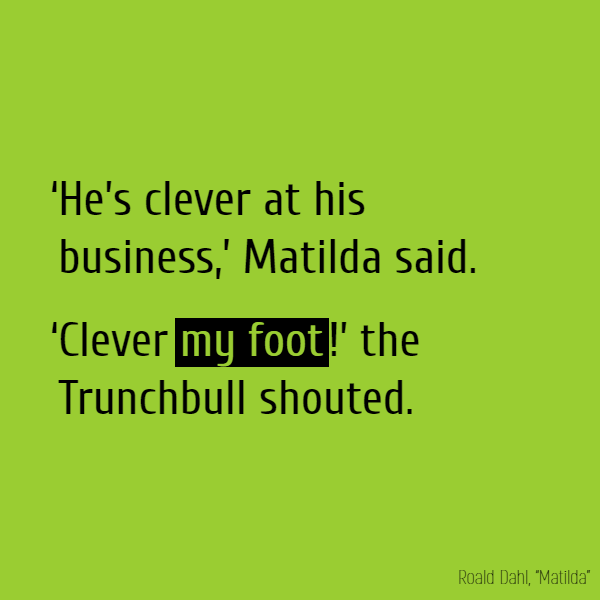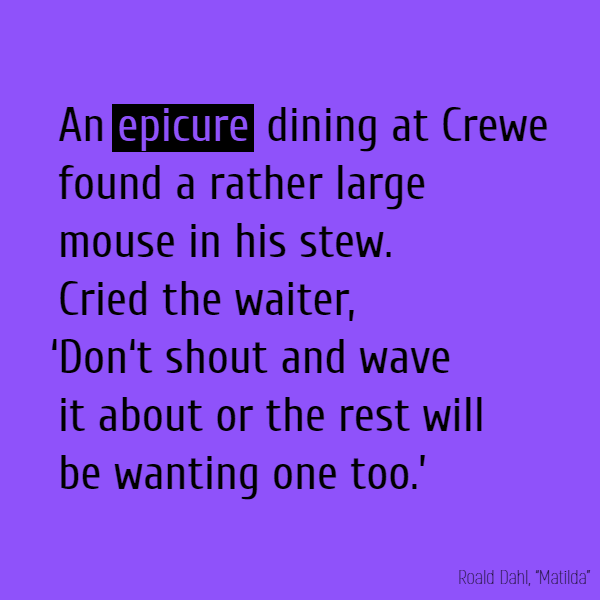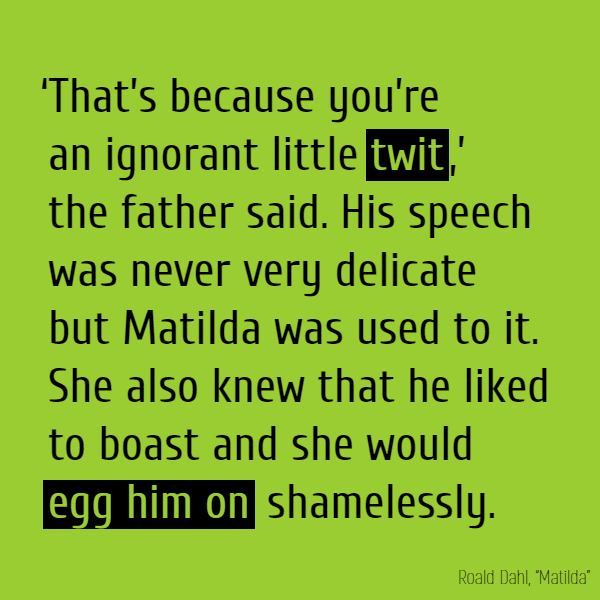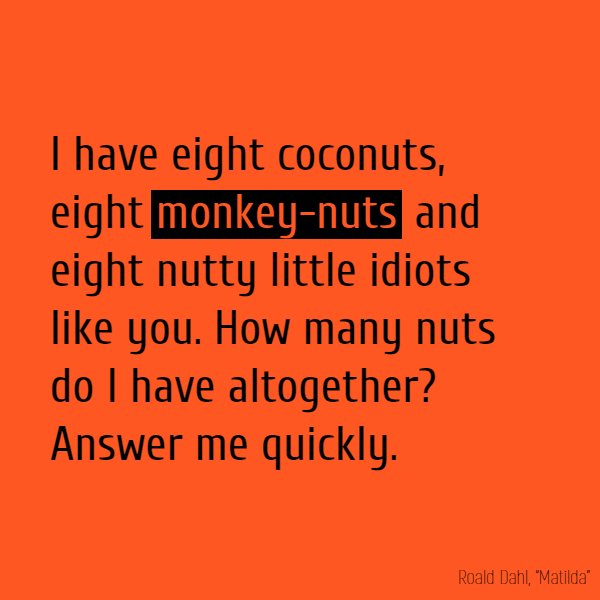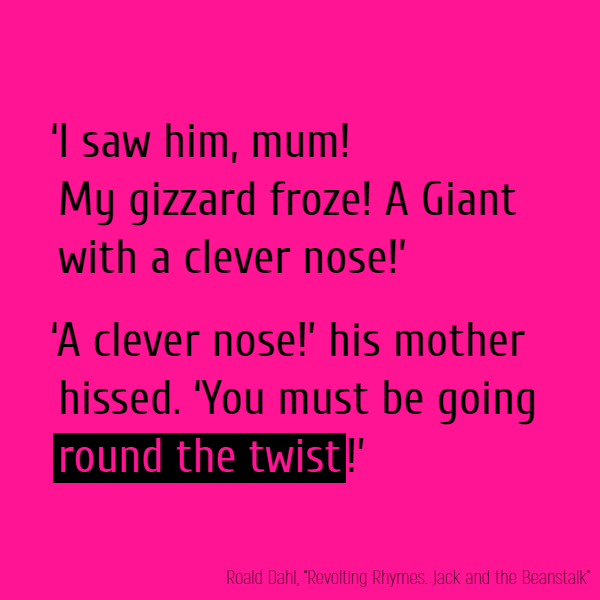После Золушки настала очередь сказки про Джека и бобовый стебель. Прочитала уже штук восемь детских книжек Даля, и там всё время кто-нибудь сходит с ума вот так:
’Oh mum!’ he gasped. ’Believe you me
’There’s something nasty up our tree!
’He smelled me out, I swear it, mum!
’He said he smelled an Englishman!’
Или так:
‘It makes me vomit,’ she went on, ‘to think that I am going to have to put up with a load of garbage like you in my school for the next six years.
(У него все книжки такие добрые, да)
По контексту понятно, что «round the bend» или «round the twist» значит «слететь с катушек» или «выжить из ума», но непонятно, почему. Есть версия, что когда-то давно в Нью-Йорке была психушка, дорога к которой петляла по холмам, и чтобы туда попасть, нужно было буквально обогнуть кучу поворотов. И сами по себе «bend» и «twist» часто используются вместе с разумом: головоломное «bend a mind», поехавшее «twisted mind» или умопомрачительное «mind-bending», так любимое Бенедиктом.
А «my gizzard froze» переводится как-то так:
«Ой, мама... верь или не верь,
но наверху кошмарный Зверь,
я там чуть к стеблю не прирос,
такой у Зверя умный нос!»
«Как — умный нос? — дивится мать. —
Ты спятил, сын... Ни дать, ни взять!» —
«Он, мам, унюхал в вышине,
что кровь английская во мне!»
Вообще «gizzard» — это мускульный желудок у животных и птиц, и выглядит он незабываемо. А в переносном смысле это нутро, и даже не знаю, зачем его запоминать — похоже, слово встречается только в этой сказке. Вот так оно выглядит у Адама Гидвица:
And one by one, each giant-hero cut himself from gullet to gizzard, and an explosion of blood and guts and partially digested meat and porridge poured all over the floor of the hall. One by one, each giant collapsed into the blood and vomit. The floor was six, now eight, now ten inches deep with blood and guts and food. Each time a giant fell, the steaming, putrid pool rippled.
«Revolting Rhymes»? You can say that again.
